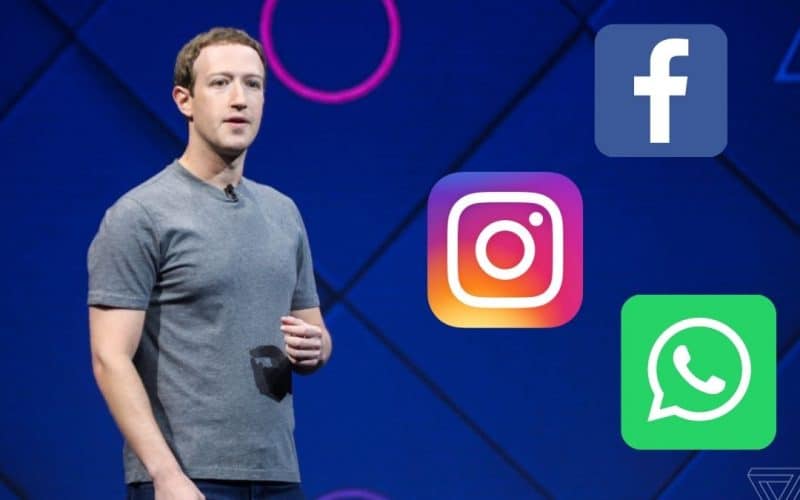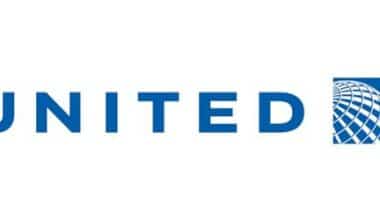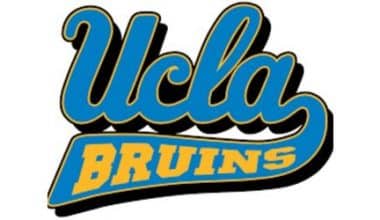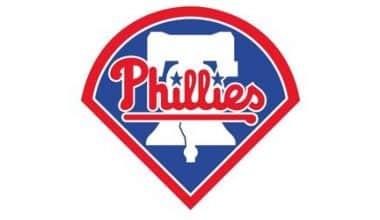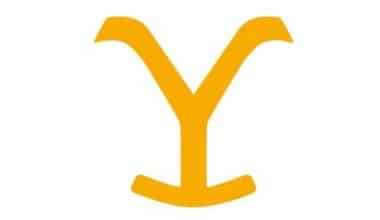Facebook is a social networking giant that has been around since 2004. Over the years, it has grown to become one of the most popular and influential companies in the world. But did you know that Facebook is owned by a larger company called Meta? Meta is a technology conglomerate that owns many different companies, including Facebook. In this blog post, we will explore the list of facebook subsidiaries owned by Meta and what each subsidiary does.
Why Meta Owns Facebook Subsidiaries?
Meta is a technology conglomerate that has been around since 2004. Its mission is to create products and services that will improve the lives of people all over the world. To reach this mission, Meta has acquired many different companies and subsidiaries over the years. By acquiring these facebook subsidiaries, Meta is able to expand its reach and create products and services that will benefit more people.
Meta also uses its subsidiaries to diversify its business. By owning multiple Facebook subsidiaries, Meta is able to reduce its risk and spread its resources around. This strategy allows Meta to remain competitive in a rapidly changing market.
Meta Facebook Subsidiaries
Meta owns many different facebook subsidiaries, including Instagram, WhatsApp, Oculus, and more. Each facebook subsidiary has its own unique mission and purpose. Some of Meta’s Facebook subsidiaries are used to create products and services, while others are used to reach different markets. No matter what the purpose is, all of Meta’s subsidiaries work together to help Meta reach its mission.
List of Facebook subsidiaries
Here is a list of facebook subsidiaries owned by Meta:
- Oculus
- Portal
- Workplace
- Calibra
- Spark AR
- Marketplace
- CrowdTangle
- Onavo
- Atlas Solutions
What Each Facebook Subsidiary Does
Each facebook subsidiary owned by Meta has its own unique mission and purpose. Here is a brief overview of what each subsidiary does:
#1. Instagram
Instagram proved to be a successful product almost immediately after its start in 2010. Mark Zuckerberg was drawn to it because it was so gleaming. Two years later, Facebook paid a stunning $1 billion for it.
#2. WhatsApp
Whatsapp launched as an alternative to the pricey text messaging service. That proved to be a wise decision, as the platform swiftly gained popularity. Facebook owns the popular chat program, which currently has 2 billion active users.
When it was acquired by the world’s largest social media network, Onavo was a web analytics company that largely handled consumer-facing apps. Currently, the service protects consumers online at the expense of gathering their data.
According to some reports, the data acquired by Onavo informs Facebook about prospective rival companies, apps, and acquisitions.
#3. CTRL-labs
This is a bold start-up focused on brain computing technologies. In brief, the company is looking at ways for humans to manage computers just with their minds.
Meta platforms acquired it in 2019 for an estimated $500-$1 billion.
#4. Beluga
This is a chat service that was purchased by Meta (the parent company of Facebook) in 2011. That was only a year after it was created. According to theories, the app was merged with Facebook Messenger, which launched shortly after Beluga’s demise.
#5. Zenbe
Zenbe is a similar acquisition that was utilized to put together Facebook Messenger. The startup brought three people who will later work on the Messenger tech stack.
#6. Oculus VR
Oculus VR is a virtual reality (VR) software and hardware firm. A month after Whatsapp was purchased, the firm was acquired. Oculus VR went on to acquire its own company, Surreal Vision.
#7. LiveRail
LiveRail is a video monetization platform that connects marketers with publishers. Facebook purchased LiveRail in July 2014 in order to improve video advertising on the social media network. To some extent, LiveRail may not be as ambitious as Meta imagined, and it appears infrequently in the most recent news and publications.
#8. Ascenta
Ascenta develops solar-powered drones to bring internet access to the world’s most remote regions. Facebook purchased the startup and its five-person engineering team to assist Zuckerberg in his vision of linking the entire planet. According to rumors, the company was purchased for less than $20 million.
#9. Little Eye Labs
This is an Indian start-up that creates apps for testing Android and other mobile applications. In other words, it assists developers and testers in analyzing app efficiency. Facebook paid $15 million to buy it in 2014, hoping it would help them boost the productivity of their apps.
Little Eye Labs takes pleasure in becoming the first Indian-based company to be bought by the social media behemoth.
#10. Atlas Services
The term “Supplier” refers to a company that provides a product or service. This Microsoft brainchild is an advertising platform that provides ad managers with excellent marketing, tracking, and monitoring features. Atlas Solutions’ services were unfortunately discontinued in 2018.
#11. Messenger
Facebook Messenger is the company’s own child. They created it from the ground up. But as you well know, the tech stack and part of the team behind it originated from Zenbe and Beluga.
Like Whatsapp, Messenger is a mobile messaging and calling program that attempts to replace the pricey services from local network providers.
#12. Giphy
Giphy is both a search engine and a database of soundless looping videos. The company expanded swiftly enough that it attempted to provide advertising services. By the end of 2019, 50% of Giphy traffic came directly from Facebook, so acquiring it made sense for the Meta platform.
Regrettably, the UK’s CMA (Competition and Markets Authority) barred Facebook from completely integrating Giphy onto its platform. And, by November 30th, 2021, the CMA ordered that Facebook divest its stakes in Giphy.
#13. FriendFeed
FriendFeed was a web-based service for gathering and organizing important information. The collected feeds would thereafter be circulated on discussion boards or shared with friends via a link.
The service was one of the first Facebook acquisitions, but it was shut down in 2015.
#14. Mapillary
Mapillary is one of the most recent arrivals into the mapping business (a Swedish start-up). It’s a database that allows map producers to access street-level photos to make better maps and mapping tools.
As an open-source initiative, Mapillary gathers data from tens to thousands of eager participants. Facebook took on this start-up to widen its open mapping efforts.
#15. tbh
A positive-focused polling software that allows friends and peers (often teenagers and high schools) to anonymously send feedback to one another. This is accomplished by asking and responding to questions via text boxes.
The app’s creators have also relocated to Facebook’s offices in order to leverage the social media platform’s boundless resources (funds and servers) to create more positive experiences for tbh. The software was purchased for an estimated $100 million.
#16. ProtoGeo
This is another mobile app developer who specialized in fitness apps. Moves are one of its most well-known works. This app has an accelerometer that tracks your activity throughout the day.
ProtoGeo is the social media behemoth’s first attempt to purchase a digital health platform.
#17. Redkix
This is a unified communication solution for businesses that require messaging, email and calendaring all under one roof. It’s an excellent tool for encouraging collaboration with your partners, teams, and customers.
Facebook intends to integrate Redkix into Workplace as part of their multi-app ambition to conquer the digital world, creating a collaboration tool that can compete with Slack.
#18. Parse
Parse is another Facebook-owned firm started by a few old-school Googlers and Y Combinator alumni. What exactly does the platform do? Parse creates back-end cloud-based tools and services that assist developers in creating mobile, desktop, and embedded apps.
The acquisition of Parse by Meta (Facebook) was intended to assist them in developing more mobile development tools. Or, more precisely, demonstrate why it can be useful to mobile devs as well.
#19. Threadsy
This is a client for integrated communication. In a nutshell, it unites email, instant messaging, Facebook, Twitter, and the enormous social web. Threadsy allows you to access all of your communications and news feeds from a single location.
Threadsy’s primary purpose has shifted, and they now assist marketers in connecting with the finest influencers.
#20. Vidpresso
This program will allow live broadcasters to add interactive effects to the screen, such as polls and comments. Any items from Facebook, Periscope, Twitter, and other social media platforms can be dragged onto the screen.
Facebook only acquired Vidpresso’s staff and technology stack. Unless and until the social media conglomerate chooses otherwise, the company will continue to provide its services to its other clients, including Nasdaq and Buzzfeed.
#21. AI Bloomsbury
This is a London-based technology firm with outstanding Natural Language Programming capabilities. The startup allows machines to answer queries using data extracted from documents.
Bloomsbury AI is not a corporation with marketable products, but rather a group of researchers. And it looks like Facebook intends to hire them to combat fake news on the platform and assist with moderation.
#22. Kustomer
Kustomer creates CRM software for small to medium-sized businesses and organizations. Its strong environment is defined by omnichannel experience, automation, intelligent routing, and superior AI performance.
According to online reports, Facebook paid $ billion for Kustomer, and the acquisition was approved by the UK’s competition watchdog (CMA).
#23. PrivateCore
This is a security startup that develops software to validate and secure servers. Facebook acquired this start-up in order to use its technology stack to protect its servers from virus threats.
#24. PlayGiga
Facebook has been purchasing gaming sites such as PlayGiga in an effort to expand its revenue sources outside of digital advertising. The latter is a cloud-based gaming platform with additional GaaS (Gaming-as-a-service) architecture that enables for the creation of more games.
#25. Sanzaru Games
Sanzaru Games is a video game development studio. Together with Oculus VR, Facebook expects that the company will provide immersive games to virtual reality enthusiasts.
#26. Scape Technologies
This is a computer vision firm whose location pinning accuracy much exceeds that of GPS. Its primary goal is to enable developers to create systems and gadgets that can track their surroundings with pinpoint accuracy. Only 75% of the company is owned by Facebook.
#27. Faciometrics
This is an emotional detection service that reads user reactions and applies the appropriate emoji. The service is not yet completely operational, but as Facebook invests in AI and deep learning, they intend to expand the functions that Faciometrics offers.
#28. Confirm.io
Facebook aims to leverage this ID verification start-up to strengthen its digital identification systems. Identity verification may become required as the social media mogul gradually expands into other profit-generating industries and marketplaces.
#29. Grokstyle
Grokstyle, another AI-powered firm, has been added to Facebook’s stock. This is a visual shopping startup that employs artificial intelligence to assist shoppers in exploring various furniture options. Because this was an acqui-hire, it’s plausible that the social media beast was just looking for great AI expertise.
#30. Servicefriend
Servicefriend is a young company that creates hybrid chatbots for messaging platforms. Facebook has not stated why it purchased it. However, because Servicefriend’s co-founders are working on the Calibra digital wallet, it is assumed that the start-up will be charged with developing a bot or a network of bots for the digital wallet.
Other Subsidiaries of Facebook Inc.
Packagd, Chainspace, Ready at Dawn, Downpour Interactive, AI.Reverie, Lemnis Technologies, BigBox VR, Dreambit, Fayteq AG, Zurich Eye, Ozlo, CrowdTangle, Nascent Objects, Infiniled, MSQRD (Masquerade), Endaga, Pebbles, Two Big Ears, Quickfire Networks, Wit.ai, TheFind, Inc. WaveGroup Audio…
Branch, Monoidics, Jibbigo, Spaceport, Storylane (Mixtent), Hot Studio, osmeta, Acrylic Software, Spool, Lightbox.com, Face.com, Karma, Caffeinatedmind, Glancee, Tagtile, Gowalla, Push Pop Press, Strobe, Friend.ly, Sofa, DayTum, MailRank, RecRec, Snaptu, Rel8tion, Hot Potato, Chai Labs, Nextstop, Drop.
Is WhatsApp a Subsidiary of Facebook?
Many people think that WhatsApp is a Facebook subsidiary, but it is actually owned by Meta. In 2014, Meta acquired WhatsApp for $19 billion. Since then, WhatsApp has become one of Meta’s most successful Facebook subsidiaries.
How many companies does Meta own?
Meta owns more than 20 companies, including the Facebook subsidiaries listed above. Meta also owns many other companies that are not facebook subsidiaries, such as Giphy and Asana.
Benefits of Facebook Subsidiaries for Meta
Meta’s Facebook subsidiaries provide several benefits for the company. First of all, having multiple subsidiaries allows Meta to diversify its business and reduce its risk. In addition, owning multiple Facebook subsidiaries gives Meta access to new markets and new sources of revenue. Finally, owning the subsidiaries helps Meta reach its mission of improving people’s lives.
Challenges of Owning Facebook Subsidiaries
Owning multiple Facebook subsidiaries also presents some challenges for Meta. Managing multiple subsidiaries can be difficult and time-consuming. It can be hard to keep track of all the different products and services offered by each subsidiary. In addition, each subsidiary has its own unique culture, which can make it difficult to create a unified company culture.
Strategies for Managing Facebook Subsidiaries
To manage its subsidiaries, Meta has developed several strategies. First of all, Meta has created a unified set of values and principles that all of its subsidiaries must adhere to. This ensures that all of Meta’s Facebook subsidiaries are working towards the same goal.
In addition, Meta has developed a system for managing its Facebook subsidiaries. This system allows Meta to track the performance of each subsidiary, as well as the overall performance of the company. Finally, Meta has created a system for sharing resources between FACEBOOK SUBSIDIARIES. This allows Meta to maximize the efficiency of its resources and ensure that each FACEBOOK SUBSIDIARY is getting the resources it needs to succeed.
Conclusion
In conclusion, Meta owns many different facebook subsidiaries that help it reach its mission of improving people’s lives. These facebook subsidiaries provide Meta with access to new markets and new sources of revenue. However, managing multiple Facebook subsidiaries can be difficult and time-consuming. To manage its facebook subsidiaries, Meta has developed a unified set of values, a system for tracking performance, and a system for sharing resources. By following these strategies, Meta can ensure that its subsidiaries are working towards its mission.
Related Articles
- Meta Logo: Best Spot-on Rebranding Practices for Any Business
- Facebook Logo: What Inspired the Logo? (Detailed History & Evolution)
- AFFILIATE VS SUBSIDIARY: How to Tell the Difference Easily!!!
- Tech Companies To Invest In: Top Companies In 2023 (Updated!)
- 4 Quick and Easy Ways to Improve Your Website’s SEO (Search Engine Optimization)
